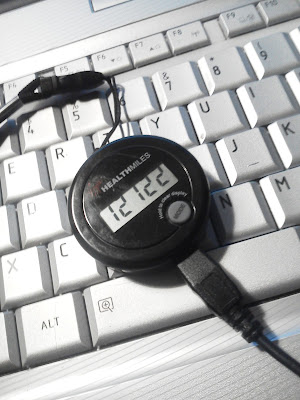The English Language
There are very few things in this world that get to me more than the English language. Seems ironic, since it’s also the only language I can speak fluently, but it’s a plain and simple fact. It’s an obnoxious conglomeration of words, governed by wet-cement rules that are changed on a whim. And, on top of this, there is no one person that really does know all the rules in the first place, leaving about one billion people out there speaking incorrectly.
Take some of the most common errors. When do you use effect and affect? (Effect is most commonly a noun, while affect is more often a verb.) How about all those homonyms: words that sound the same but mean different things, like steak and stake, there, their, and they’re, or plane and plain. These are the things that haunt elementary students—things that are leading causes of red marks on papers.
Have you ever tried to explain a word to an exchange student before? At the beginning of last year, I had this chance, and wow, what a pain. I had never realized before how many words have double meanings. Starting with regular slang, for example—words like “cool” and “killer,” two that I overuse, are next to impossible to explain. No, the person wasn’t cold, and no, nobody died. Take a look at the first sentence of this paragraph while you’re at it; “tried” and “exchange” both have two or more meanings, and while these definitions have the same basic idea behind them, they refer to totally different things. Like “tried”: to test or experience and to judge. Then think about “exchange,” which usually means that you trade something in for something else permanently—which is a scary definition for an exchange student.
I personally have two major beefs (look, another double meaning) with people—their misuse of “at” and apostrophes. Things are NOT pluralized with an apostrophe + s, such as “thing’s.” This is a rather recent development; only in the past couple of years have I noticed signs displaying this abomination. Furthermore, a sentence should not end with the word “at,” as it is a preposition, and an ugly-sounding one for that matter. Besides, what makes you sound more like a redneck than, “Where’s it at?”
Just to point out my own mistakes, I started the last paragraph with the word “I.” However, most English teachers won't count that wrong, as it's such a common mistake. (Leave it to humans to be that self-centered.)
This doesn’t even touch on clichés, which are a mystery to all who learn English as a second or third language. Where else does “kick the can” mean you die?
With that, I shall end this rant.
On a more personal note, the day was very boring. I’m looking forward to school, although I still have to finish getting ready (Barb … measurements … thanks …). Doesn’t matter—it still can’t come fast enough.
Now, I’m going to get back to everything else I need to get done. Talk to you all later.
In dog years, I’m dead.
Take some of the most common errors. When do you use effect and affect? (Effect is most commonly a noun, while affect is more often a verb.) How about all those homonyms: words that sound the same but mean different things, like steak and stake, there, their, and they’re, or plane and plain. These are the things that haunt elementary students—things that are leading causes of red marks on papers.
Have you ever tried to explain a word to an exchange student before? At the beginning of last year, I had this chance, and wow, what a pain. I had never realized before how many words have double meanings. Starting with regular slang, for example—words like “cool” and “killer,” two that I overuse, are next to impossible to explain. No, the person wasn’t cold, and no, nobody died. Take a look at the first sentence of this paragraph while you’re at it; “tried” and “exchange” both have two or more meanings, and while these definitions have the same basic idea behind them, they refer to totally different things. Like “tried”: to test or experience and to judge. Then think about “exchange,” which usually means that you trade something in for something else permanently—which is a scary definition for an exchange student.
I personally have two major beefs (look, another double meaning) with people—their misuse of “at” and apostrophes. Things are NOT pluralized with an apostrophe + s, such as “thing’s.” This is a rather recent development; only in the past couple of years have I noticed signs displaying this abomination. Furthermore, a sentence should not end with the word “at,” as it is a preposition, and an ugly-sounding one for that matter. Besides, what makes you sound more like a redneck than, “Where’s it at?”
Just to point out my own mistakes, I started the last paragraph with the word “I.” However, most English teachers won't count that wrong, as it's such a common mistake. (Leave it to humans to be that self-centered.)
This doesn’t even touch on clichés, which are a mystery to all who learn English as a second or third language. Where else does “kick the can” mean you die?
With that, I shall end this rant.
On a more personal note, the day was very boring. I’m looking forward to school, although I still have to finish getting ready (Barb … measurements … thanks …). Doesn’t matter—it still can’t come fast enough.
Now, I’m going to get back to everything else I need to get done. Talk to you all later.
In dog years, I’m dead.


Comments